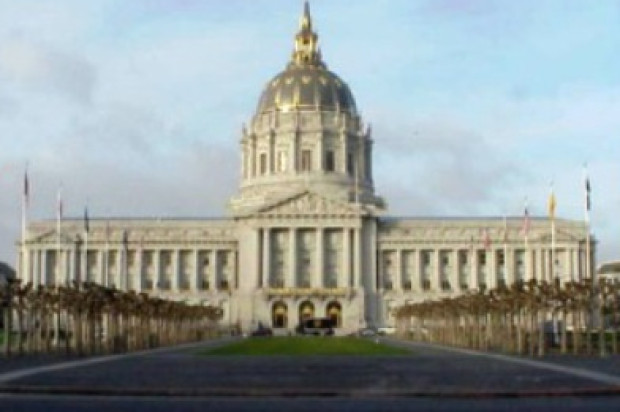
Mayor Ed Lee signed a two-year $17.2 billion balanced budget for San Francisco this morning, calling it the first time in six years the city has had a budget deficit under $100 million.
“This is a historic budget at a historic time,” Lee said, referencing the cuts made since 2008 as the city struggled to cope with revenue shortages during the economic downturn.
The Board of Supervisors unanimously passed the budget Tuesday after working with the mayor and the budget committee revising it for the last year.
“This is probably the easiest budget we’ve had to move forward,” board President David Chiu said today, noting that when he took office in 2009 the city was running budget deficits of a half-billion dollars.
Lee said the new budget makes new investments in transportation, education and the social safety net as well as what he called a “historic investment in our housing.”
“We’ve made smart investments in our city and the budget prioritizes fiscal prudence,” Lee said.
The mayor’s office said the budget includes $50 million in new funding for existing affordable housing projects to help deal with the city’s housing issues.
New social services funding includes $24 million to prevent evictions and for homeless services, $6.2 million for homeless mental health services, $5 million in assistance for seniors and $20.8 million for the Human Services Agency, according to the mayor’s office.
Lee also said that the budget includes plans to repave 1,700 city blocks and a 10 percent increase in the budget for San Francisco Municipal Railway system.
That budget may increase further if a charter amendment added to November’s ballot by the Board of Supervisors Tuesday passes. That amendment would tie Muni’s funding to population and add $20 million from the city’s general fund immediately.
Its passage, along with other unanticipated costs over the next few years, could potentially disrupt what Lee called the “delicate balance” of attempting to stick to the written budget for the next two years.
But much of the city’s costs are locked in for the next few years because in the run up to the budget’s passage, the city negotiated new contracts with almost all city workers’ unions
Supervisor Mark Farrell, chair of the board’s budget committee, said that his committee wanted to make sure that the budget “set us up for the future.”
Scott Morris, Bay City News









